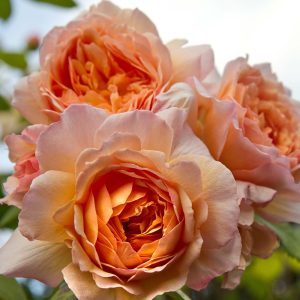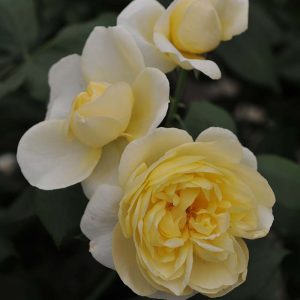Description
Allium neapolitanum, also known as Naples garlic or the “drumstick allium” is a species of onion native to southern Italy and the Mediterranean. This bulbous perennial produces tall spikes of small, star-shaped pink-purple flowers that bloom in late spring to early summer. Allium neapolitanum is grown as an ornamental plant, it’s a great option for cottage gardens, wildflower gardens, meadows, mixed borders and rock gardens. it can be planted in large groups to create a bold and colorful display. Alliums in general are also attractive to pollinators and beneficial insects, they will add both color and interest to the garden while providing food for pollinators.
Key Facts
- Common Name(s):Neapolitan Garlic
- Hardiness:Fully hardy through most of the UK
- How big will I get? Allium neapolitanum can grow to a height of 0.5m and a spread of 0.1m.
- Did You Know That:If grown in soil with no sulphur present at all, all Allium species will lose all their typical scent?
Plant Calendar
A rough guide to how this plant will change through the year.
| Jan | Feb | Mar | Apr | May | June | July | Aug | Sept | Oct | Nov | Dec | |
| Flowering Time | 
| 
| 
| |||||||||
| Foliage Colour |  |
 |
 |
 |
 |
 |
 |
 |
 |
| J | F | M | A | M | J | J | A | S | O | N | D |

| 
| 
| |||||||||
 |
 |
 |
 |
 |
 |
 |
 |
 |
Care Guide

Soil Requirements
Allium neapolitanum is a versatile plant and can cope with wet or drier soils, but prefers there to be decent drainage. This plant can grow in soil with a wide range of pH levels, it is not picky about the pH level of the soil.

Best Position
Allium neapolitanum prefers a sheltered position and requires full sun to thrive, this consists of more than six hours of direct sunshine per day.

Maintenance
Allium neapolitanum is fairly low maintenance and doesn’t require any pruning. Alliums are often kept untouched through Autumn and Winter due to the attractive shape of their seed head which is reminiscent of the flowers just without the colour. Any remaining growth can be cut back in early Spring to encourage fresh growth or immediately after flowering if you are wanting more space in your borders.

Pest, Diseases and Wildlife
Allium neapolitanum is generally pest free, it can be vulnerable to certain diseases such as downy mildew. It is also known to attract bees, butterflies and other pollinators. It is toxic to cats, dogs and horses.





